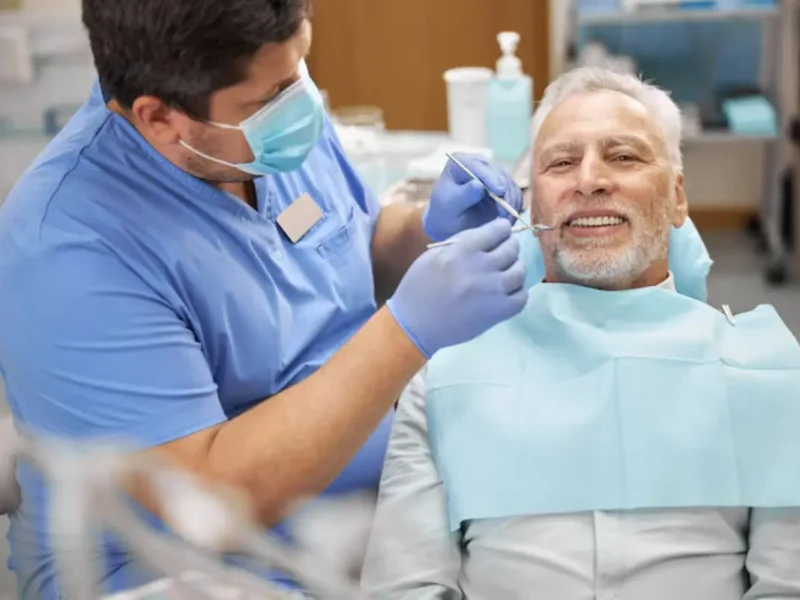Individuals living with a dual diagnosis need particular support, care, and most of all, specialized care. Many times, it can be challenging to know where to turn for these needs and get the guidance you need. Perhaps you’re worried about finding an appropriate dual diagnosis rehab center for your loved one.
It can be hard to know where to turn. We are here to make the process easier for you. Read on to know how to make the right decision in picking a dual diagnosis rehab.
Contents
- 1 Identify Your Treatment Requirements
- 2 Understand Different Treatments for Dual Diagnosis
- 3 Ask Around for Local Rehab Centers
- 4 Investigate the Facility’s Credentials and Specialties
- 5 Research a Rehab Center’s Philosophy and Values
- 6 Get To Know the Doctors and the Staff
- 7 Evaluate Insurance Coverage
- 8 Compare Costs
- 9 Choose the Right Dual Diagnosis Rehab Center for You
Identify Your Treatment Requirements
Consider factors such as your mental health issues, age, and underlying medical conditions. Ask yourself what type of environment you need to be successful. And don’t neglect to think about what level of intensity you feel comfortable with.
Do you want cognitive-behavioral therapy or dialectical behavior therapy? Are you hoping to benefit from family therapy? Are you looking for a “12-step” type program or something more holistic?
Do you prefer group or individual therapy? If a specific type of therapy or approach is important to you, make sure the rehab center offers that.
You need to consider what your treatment requirements are and what you are looking for. This can help you narrow down options, so you can focus on a facility that will provide you with the best care.
Understand Different Treatments for Dual Diagnosis
Treatments for dual diagnosis can vary depending on its severity and circumstances. Different treatments can include cognitive behavioral therapy and emotion-focused interventions. Other treatments also include family therapy, social problem-solving, and relapse prevention.
Medication management can also be used to treat both disorders concurrently, as well as to treat any potential side effects. Adjunctive treatments like art and music therapy and animal-assisted therapy can also help. They can stabilize and encourage recovery.
Other treatments may include participation in self-help groups, outpatient care, and residential care. Typically, an integrated treatment approach is most effective, combining psychosocial interventions and medication.
All these treatments can foster short-term and longer-term recovery. They all allow individuals with dual diagnoses to return to their lives. Individuals who go through treatments will have healthier coping skills and improved well-being.
Ask Around for Local Rehab Centers
Ask friends, family members, or health professionals for any recommendations or advice. Research the ones that are recommended so that you can be confident about the services they provide. Then, read reviews online to help you get a better understanding of the services offered by the center.
Investigate the Facility’s Credentials and Specialties
Start by looking into the rehab center’s accreditation and certifications. Then, research the types and levels of care they offer to make sure they can provide what you need.
Take the time to investigate if the center has any specialties that could benefit you. They could specialize in mindfulness and holistic practices or psychiatry and cognitive therapy.
You should also ask staff members questions to ensure that they have experience in dealing with dual-diagnosis cases. Don’t hesitate to ask specific questions and don’t hold back. This will give you the best chance to get to know how a center treats its patients.
You also have to make sure the facility offers aftercare services to give you the best chance of staying clean and sober once discharged. By doing the necessary research, you will be well-equipped to make a decision that can help you move forward in recovery.
Research a Rehab Center’s Philosophy and Values
Doing research helps you determine if the overall approach and environment of the facility are the right match for your needs. Consider how a facility views drug addiction treatment and what their long-term goals are for their patients.
You want a center that embodies the type of environment that you are comfortable in. So evaluate the center’s mission statement and vision.
A rehab facility should have a dedication to providing integrated and comprehensive care like this rehab center. It should take into account mental health, physical health, and personal needs.
Get To Know the Doctors and the Staff
The staff members of a dual diagnosis facility should be well-trained and experienced. They must have the expertise in addressing the unique needs of patients with both mental health and drug addiction issues. The staff should be able to discuss the treatment goals, services offered, and any special accommodations.
Before making a decision, you should also get to know the doctors who run the facility. Ask questions such as: What is their experience treating dual-diagnosis patients? Do they have any research or publications in the area of dual diagnosis treatment?
Evaluate Insurance Coverage
When it comes to choosing the best dual diagnosis rehab center, evaluating insurance coverage is a critical element. So it is important to ensure that the rehab facility is approved by your health insurance provider.
Additionally, research which treatments, therapies, and services are covered. Your insurance carrier is likely to offer a list of in-network providers that typically offer a wide range of dual diagnosis services. Receiving a list of rehab centers that you may be able to attend can help narrow down your choices.
Compare Costs
There are many types of dual diagnosis treatment centers available and they can range in cost from very cheap to quite expensive. So it is important to shop around to find something that fits your budget. Then, consider whether a payment plan is available to you so you can offset the cost.
Additionally, look into the quality of care offered and the staff-to-patient ratio at each facility. Carefully weigh the costs and benefits of each option and decide which is best suited to your situation.
Choose the Right Dual Diagnosis Rehab Center for You
Finding the best dual diagnosis rehab center for your needs is a personal journey. So take the time to research and compare facilities.
Talk to healthcare providers and your loved ones. Visit facilities and ask questions. Take your time and make an educated decision.
Above all, don’t delay. Seek the help you need as soon as you are able.
Did you find this article helpful? If so, check out the rest of our site for more now.



